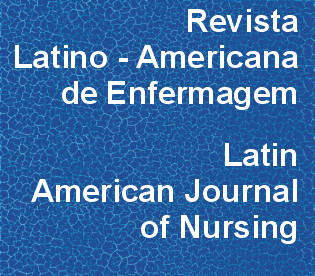The meaning of being a man with intestinal stoma due to colorectal cancer: an anthropological approach to masculinities
DOI:
https://doi.org/10.1590/S0104-11692009000500011Keywords:
colorectal neoplasms, nursing, culture, gender identityAbstract
This study analyzes the meanings that men with intestinal stoma attribute to their colorectal cancer experience and its treatment. The medical anthropology framework, gender identity and the ethnographic methods were used. A total of 16 men from 40 to 79 years of age, residents in Ribeirão Preto and neighboring cities, SP, Brazil participated in the study. Data collection was carried out through participant observation and semi-structured interviews. Two groups of meanings were selected through inductive data analysis: acknowledging the severity of the disease and the distress of having cancer, and being submitted to surgery and suffering from a stoma. These meanings revealed the tension that develops between traditional patterns of masculinity and the new identities resulting from the experience. The understanding of these meanings from a cultural perspective favors nurse-patient communication and enables planning of care appropriate to these patients' needs.Downloads
Download data is not yet available.
Downloads
Published
2009-10-01
Issue
Section
Original Articles
License
RLAE’s authorship concept is based on the substantial contribution by each of the individuals listed as authors, mainly in terms of conceiving and planning the research project, collecting or analyzing and interpreting data, writing and critical review. Indication of authors’ names under the article title is limited to six. If more, authors are listed on the online submission form under Acknowledgements. The possibility of including more than six authors will only be examined on multicenter studies, considering the explanations presented by the authors.Including names of authors whose contribution does not fit into the above criteria cannot be justified. Those names can be included in the Acknowledgements section.
Authors are fully responsible for the concepts disseminated in their manuscripts, which do not necessarily reflect the editors’ and editorial board’s opinion.
How to Cite
Dázio, E. M. R., Sonobe, H. M., & Zago, M. M. F. (2009). The meaning of being a man with intestinal stoma due to colorectal cancer: an anthropological approach to masculinities. Revista Latino-Americana De Enfermagem, 17(5), 664-669. https://doi.org/10.1590/S0104-11692009000500011



